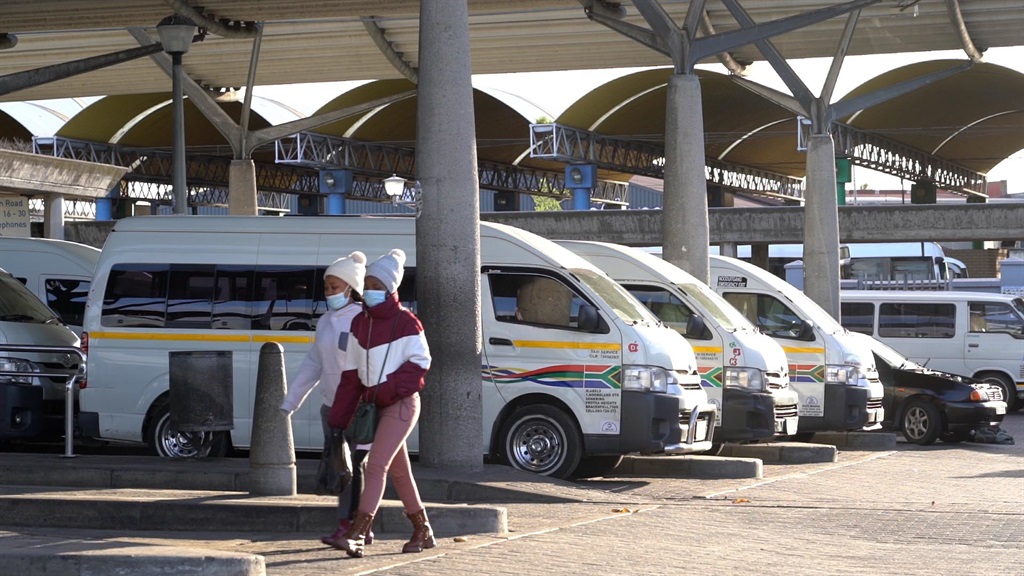
- Cape Town taxi commuters are fed up with fare hikes.
- Local taxi associations say they are forced to up their prices due to crippling fuel price increases.
- Golden Arrow Bus Services, however, chose not to increase fares just yet.
The recent hike in the petrol price is causing Cape Town taxi commuters massive financial strain as transport fares across the Cape Peninsula have increased once again.
In June, taxi associations decided to up their fares from between R1.50 to R3 per trip, depending on where you travel from.
With some paying as much as about R1 300 a month on transport, commuters say it feels like they're always getting the short end of the stick.
Delft resident Charne Williams travels to the CBD for work every day. It costs her R30 to the CBD and another R30 back home.
Williams said:
Commuters from Mitchells Plain can now expect to pay about R25 for a trip to the CBD.
Strandfontein residents will now fork out R25 to get to the CBD and R20 to Wynberg.
READ: 'This will leave a huge hole in our pockets': Cape Town bus commuters slam Golden Arrow ticket hike
Manenberg, Heideveld and Bonteheuwel commuters are charged R18 for a trip to the CBD.
Those going to Camps Bay have to fork out an additional R14 from the CBD.
Shanieka Arends said she had no other choice but to pay the increased fares because she had no other means of transport.
Arends said:
Khayelitsha sisters Boniswa and Lulama Tshikama are "not happy at all" about the price hike.
"Maybe if these taxis were a bit more reliable and actually cared about passengers' lives when we hit the road, I'd be concerned about their daily income. But they've repeatedly shown us they really don't care much for our lives by the way they drive. It costs me close to R50 per day travelling with them and almost every day, we are late. I really am considering taking a bus," Lulama said.
Kieth Johnson said he ditched his car for a taxi because of the high petrol price, but now he's reconsidering using his own vehicle again.
"You would think you're benefiting by using your own means of transport to get to work, but that's not the case. I started taking public transport earlier this year, hoping I'd save some money, but public transport is just too unreliable," he added.
ALSO READ | Inflation breaches upper limit of Reserve Bank target
He said another petrol price hike was a concern and that people are weighing all their options, including the option of a lift club.
Natalie Matimure said her employer offered her a place to stay at their home in the week, so that she doesn't have to spend money on travelling. But she declined the offer.
"I can't leave my kids alone at home every day. Yes, it would've benefitted me to stay at my work premises in the week, but I don't have anyone to look after my babies. So I'm forced to pay this increased fare every day," she added.
Losing customers
Western Cape chairperson of the South African National Taxi Council (Santaco), Mandla Hermanus, said: "Customers and drivers are not happy, and it's understandable. However, we see no other option to save us from the fuel hike. Drivers have since complained that they have lost customers as many of them cannot afford to pay the daily amount drivers are asking."
"It's a worry for them because customers are choosing to use other means of transport that are cheaper," he added.
They expect another possible fuel price increase next month, but won't increase fares again, he said.
He added:
The Peninsula taxi association said it would increase fares from next month.
"Our customers in the CBD can expect to pay R10 to areas within the area. From the CBD to Sea Point will now cost R14. There is just no other way around it. The petrol hikes are giving us all stress. Our drivers can't work if they're not benefiting at the end of the day," said taxi rank regulator Moegammat Arends.
Western Cape Department of Transport and Public Works spokesperson Jandré Bakker said it was important to note that the minibus taxi industry was not subsidised while other modes of transport, such as rail services, receive some form of subsidy.
"There may come a time when the rise in operating costs, including fuel, outperform the grant contributions which may lead to increases in fares as well. The fact that the minibus taxi industry is unsubsidised makes projects such as the Blue Dot Taxi Pilot by the Western Cape Department of Transport and Public Works - the only one of its kind in the country - vital to the industry as it provides at least some form of relief to the industry by rewarding good driver behaviour and improving the level of service to the commuter," Bakker added.
ALSO READ | 4 budget cars that will cost you less than R1 000 to fill once petrol hits R27 a litre
He said the fuel price hikes do not only affect the minibus taxi industry, but the entire economy.
Dunoon taxi association spokesperson Grant Qotyiewe said fare hikes will be rolled out in July once all stakeholders have come to a suitable amount to increase by.
"Our customers know there is a fare increase going to happen. We will communicate in advance once discussions have been finalised by the end of this week," said Qotyiewe.
Bus commuters
However, bus commuters can breathe a sigh of relief.
Golden Arrow Bus Services (GABS) spokesperson Bronwyn Dyke Beyer confirmed that it will not be pushing up fares.
"The upcoming increase in the price of diesel is going to be yet another blow for Golden Arrow, but we have decided not to increase fares at this stage to provide our passengers with some small sense of relief amidst all of the price increases they are facing," she said.
According to GABS, diesel is one of the company's biggest expenses. Price hikes therefore put severe pressure on operating margins.
"Golden Arrow will, however, continue to absorb these increases for as long as possible. Going forward, we will continue to monitor the situation closely but would like to once again assure our passengers that we are committed to making travel on our buses as cost effective as we can," she added.
ALSO READ | Survive the cost of living crisis – what you need to do now
GABS has not ruled out the possibility of fare hikes but added that "fare increases will never be implemented unless completely unavoidable".
"Any potential future increases will be discussed with the Western Cape provincial Department of Transport and notice will be given in advance to all affected parties," said Dyke Byer.
The City's mayoral committee member for Urban Mobility Rob Quintas said MyCiTi fares do not change with immediate effect in response to fuel price changes.
Rather, fares are reviewed and adjusted in July every year in response to the latest cost projections for the provision of services - including the cost of fuel - for the financial year ahead, which is the year 2022/23 in this case.
Quintas added:
He said this "protects passengers from paying too much" when the fuel price decreases substantially and protects the City from ongoing losses when the fuel price increases substantially.
According to the tariffs, these mandatory fare changes can only take effect on 1 November or 1 March of each financial year.
"The required conditions for such an increase were triggered earlier this year, with a mandatory MyCiTi fare increase taking effect on 1 March 2022, the annual changes to MyCiTi fares to take effect on 1 July 2022 include only minor adjustments to the fares that took effect on 1 March 2022," he added.
The City said the fuel price increase earlier this month and further projected increases in the cost of fuel could result in a further mandatory fare increase on 1 November 2022.
We want to hear your views on the news. Subscribe to News24 to be part of the conversation in the comments section of this article.




 Publications
Publications
 Partners
Partners























